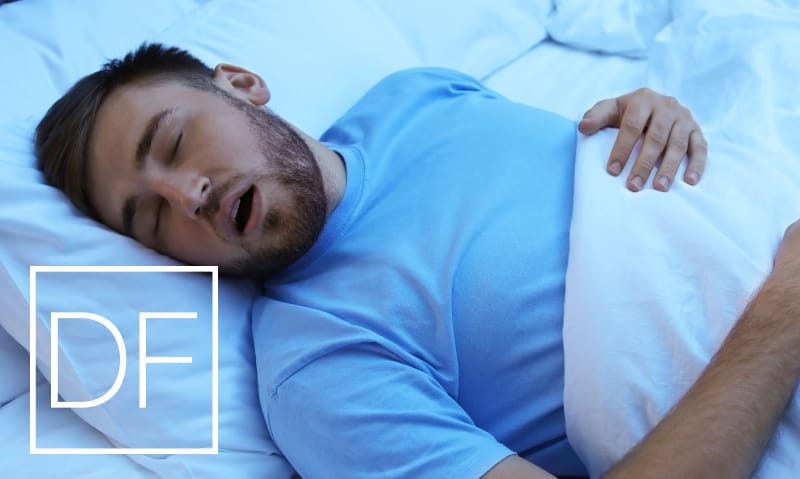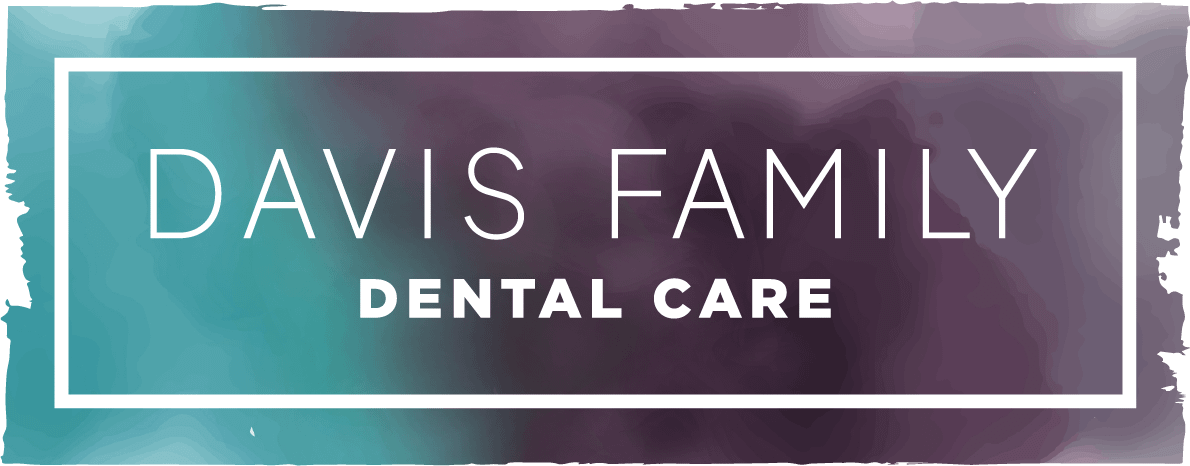Dangers and Damages of Snoring, Mouth Breathing, Chronic Congestion, and More

Snoring can get in the way of more than just your rest.
Whether you’ve been the person trying to fall asleep to the Oscar-winning chainsaw impression that is your partner’s snoring or whether you’ve found yourself waking up to the sound of your own snores, we’ve all experienced snoring and the way it can interfere with sleep in one form or another.
With a good sense of humor, these experiences make for a funny story and often feature in jokes and comedy shows. Over time, though, they’re also often frustrating and exhausting. After all, sleep is incredibly important for your health, and snoring can get in the way of sleep for you and your partner.
But did you know that snoring—and other issues that often point to a restricted airway—can be dangerous for your health? It’s an aspect that’s easy to overlook or you might not realize it could be the sign of a bigger issue. But what causes a restricted airway, what are the symptoms, and is it really that dangerous? We’ve put together a guide to help you learn more about this issue and point you toward the next steps you should take.
What causes a restricted airway in the first place?
There are several ways your airway can become restricted, making it hard to breathe through your nose the way you’re meant to. A few of the main causes are an enlarged tongue, tonsils, or adenoids, which can narrow your airway by taking up more room than they should; chronic congestion caused by issues like allergies or frequent colds; a deviated septum; nasal polyps; obesity; and the use of alcohol or sedative medications.
You can experience a restricted airway and sleep-disordered breathing—including snoring—without having obstructive sleep apnea. The condition could still be a root cause of your restricted airway, however, so it’s always best to schedule an appointment with a sleep specialist to be safe!
Oddly enough, malocclusion, or a misaligned bite, can also play a role in a restricted airway, though not enough of one to be the sole cause. The position of your jaw impacts how open your airway is, so a misaligned jaw can cause your jaw to rest in a position that causes your airway to be narrower than it would otherwise be. For the same reason, bruxism can cause your airway to narrow as well.
Thankfully, most of these issues can be addressed! Doing so does more than help you breathe easier—it can help you live a healthier, happier, more energetic life by helping you regain the quality sleep you need.
What are the symptoms of a restricted airway?
A restricted airway can lead to a surprising number of symptoms, some incredibly well-known and others that you may not have realized are even connected. Snoring is the most well-known symptom, but a restricted airway can also cause issues like mouth breathing. While snoring involves breathing through your mouth at night, mouth breathing is when you’re breathing through your mouth during the day, too.
Both snoring and mouth breathing are tied to their own lists of symptoms. Your jaw’s natural resting position isn’t with your mouth open, so keeping your jaw in that position can put a strain on the muscles and joints, leading to headaches and jaw pain. Snoring and mouth breathing can also cause dry mouth and frequent colds or ear infections, as well as fatigue, irritability, and difficulty concentrating if you’re not getting enough quality sleep.
What are the long-term dangers of having a restricted airway?
A restricted airway and the symptoms it causes aren’t just uncomfortable—they pose very real long-term dangers to your health. Over time, the strain on your jaw can contribute to or cause the development of temporomandibular joint disorder, or TMD, which has a range of symptoms, from headaches and jaw pain that can make it difficult to eat or speak to earaches and muscle pain in your neck, shoulders, and back. Bruxism risks damaging your teeth through cracks, chips, or breaks, and can wear them down over time.
Even the seemingly simple symptom of a dry mouth has consequences. Your saliva flushes food debris from your mouth and plays an active role in fighting bacteria to prevent cavities and gum disease, but a dry mouth means the saliva isn’t there to do its job. This increases your likelihood of developing cavities and gum disease.
Sleep-disordered breathing has also been linked to the development of major health issues like type 3 diabetes, cardiovascular disease, Alzheimer’s, and more.
Breathing through your nose also carries way more benefits than you might realize. It warms and humidifies the air as you breathe it in, but it’s also a built-in filtration system for germs, dust, and other small debris. It catches and kills germs, protecting you from the illnesses they could have caused. When you breathe through your mouth instead, you miss out on these benefits, which is what can cause you to get more frequent illnesses like colds.
Additionally, mouth breathing can impact the development of a child’s face by causing them to develop features like a longer face, lips that are constantly open, a high palate, a narrower upper jaw, and more. They can also develop orthodontic issues, like overcrowding, impacted teeth, or a malocclusion like an open bite or crossbite through poor oral posture, which is where the resting position of their tongue is pressed against or between their front teeth instead of resting against the roof of their mouth.
How can your dentist help?
Thankfully, when you have a good family dentist, there’s a surprising amount they can do to help you with these issues! The first thing your dentist can do is direct you to a sleep clinic so that you can get tested for sleep apnea. Your dentist can also work with you to find solutions to issues like snoring, bruxism, TMJ disorder, malocclusions, and more.
One of the main ways you can find relief from snoring—even mild to moderate sleep apnea—bruxism, and TMJ disorder is by using a custom mouthguard. Mouthguards for snoring, sleep apnea, and TMJ disorder function by determining the ideal position for your jaw and then gently holding it in that position while you sleep.
The main goal of TMJ mouthguards is to hold your jaw in a relaxed position, while snoring and sleep apnea mouthguards aim to find a position that keeps your jaw relaxed while ensuring your airway is as open as possible. Mouthguards for bruxism protect your teeth from damage and cushion your jaw to relieve muscle and joint pain.
Your dentist can also evaluate your jaws and recommend treatments like myofunctional therapy and orthodontics to remedy TMJ pain or a malocclusion. A great family dentist will have a lot of experience dealing with issues like this, so they can evaluate your teeth and jaws and give you treatment recommendations that are tailored to you.
Partner with an experienced dental practice like Davis Family Dental Care.
While it’s easy to overlook issues that lead to restricted breathing, it’s important to address them quickly. You might be surprised by just how much seeking treatment can change how you feel every day, from relieving pain you didn’t realize was connected to giving you more energy. The positive effects don’t stop there, though, as getting treatment can benefit you for years to come by helping you stay healthier for longer! If you’d like to learn more about how your dentist in Bedford, TX, can help you address these issues, feel free to schedule a consultation at any time.
